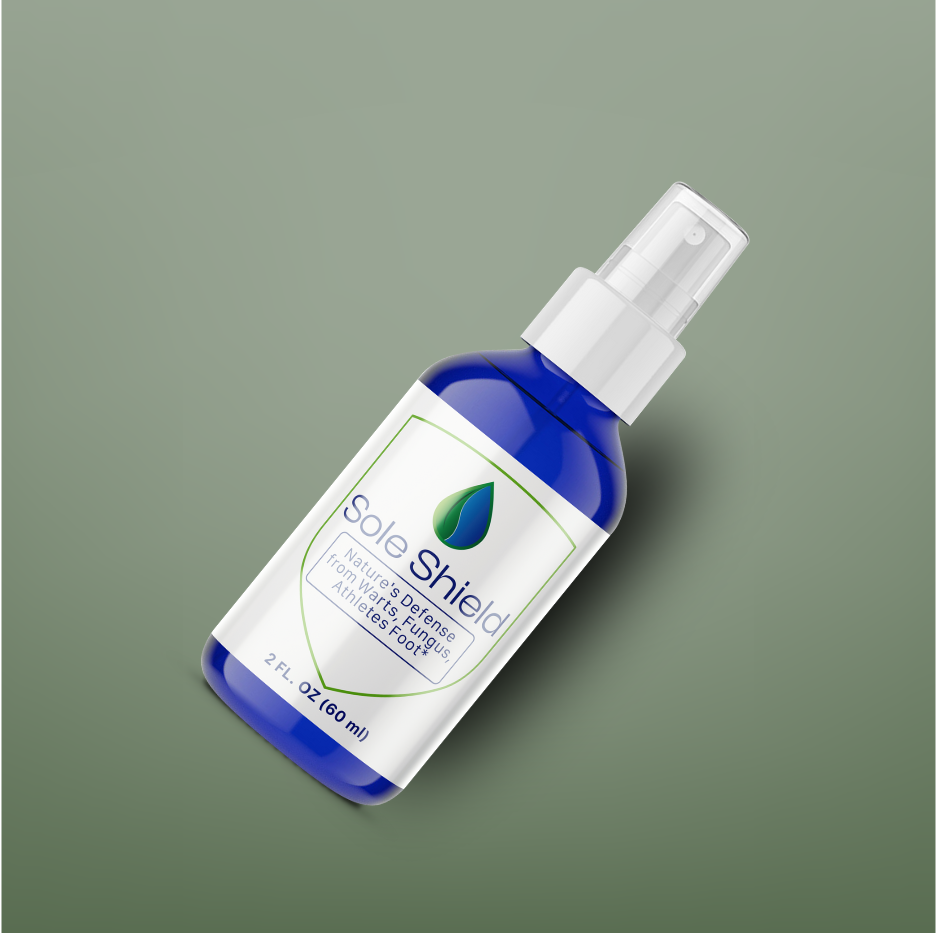Disclaimer: The information in this article is for educational and informational purposes only and is not intended to diagnose, treat, cure, or prevent any disease. The content is based on publicly available research and third-party sources, and does not represent medical advice or claims made by IodinePure. Always consult a qualified healthcare provider before making decisions about your health.
Rethinking Breast Cancer Treatment: The Emerging Role of Molecular Iodine
Introduction

Among the many health challenges women face, breast cancer remains one of the most widespread and deadly, affecting millions globally. While traditional chemotherapy has extended the lives of many patients, it is often accompanied by serious side effects and the troubling risk of chemotherapy-resistant cancer cells.
In response, researchers and clinicians have explored complementary therapies that could enhance the effectiveness of chemotherapy while minimizing its harm. One promising advancement is the integration of molecular iodine (I₂) into conventional breast cancer treatment protocols. Early studies suggest that iodine may not only help improve treatment outcomes but also reduce the burden of side effects—offering a new frontier in the fight against breast cancer.
Understanding the Adjuvant Potential of Molecular Iodine in Breast Cancer

Molecular iodine (I2) is also attracting attention with its possible cancer treatment effects with breast cancer. Controlled pilot trials suggest a continued potential for I2 supplementation in patients with breast cancer receiving standard cytotoxic chemotherapy and published work from their institution that included I2 supplementation in patients with localized early-stage (Moreno-Vega et al., 2019).
This study marked a paradigm shift in how I2 can interact with the tumor microenvironment to help improve disease control and treatment efficacy. Research has shown that iodine affects the MCF-7 breast cancer cell line by interacting with estrogen-related mechanisms to influence cancer cell behavior.
Iodine's role in cancer treatment is further supported by findings that iodine alters gene expression specifically in breast cancer cells, suggesting its potential anti-estrogen effects.
Studies indicate that iodine modulates various biological functions of estrogen receptors within human breast cancer cells, potentially inducing apoptosis and highlighting its therapeutic role in breast cancer treatment.
Iodine’s Anti-Cancer Effects
Iodine tanked the proliferation of breast cancer cells, promoted apoptosis or programmed cell death, and impacted the expression of genes relating to cancer initiation and progression. These results are particularly important because they hint at the possibility of iodine averting and treating breast cancer.
Though the particulars of the action are not very clear, it is postulated that iodine anticancer action includes modulation of estrogen receptors, cell cycle arrest, and apoptosis. These discoveries accentuate the importance of iodine in breast cancer management and therapy.
Iodine and Estrogen Receptors
Breast cancer has been closely linked to estrogen receptors with the highest progression being associated with mutant (ER-α) receptors. Some literature suggests that iodine has the ability to alter levels of expression of these receptors in breast carcinoma.
There are even case studies which have shown that it is possible for iodine to elevate factors leading to the expression of ER-α receptors that help suppress the growth of breast cancer cells and cause their apoptosis. Iodine has also been shown to reduce the expression of estrogen targets like cyclin D1 and cathepsin D that also play a role in breast cancer initiation and development.
These studies suggest that iodine may target cancer-related pathways, resulting in the inhibition of breast cancer development and spread. This makes iodine a very useful adjunct in breast cancer therapy.
Study Design and Findings

Out of the total cancer patients, there were two categories; the slowly proliferating cancer group (Stage II) and the rapidly proliferating cancer group (Stage III). Each cohort was further divided into two groups – one with iodine-supplemented and the other with placebo pills. The incidence of breast carcinoma among the study participants was also recorded, highlighting the need for further research into the relationship between thyroid conditions and breast cancer.
- Early-stage group: I2 or placebo was administered to the patients 1 to 5 weeks before the surgery. The effects of iodine on breast tissue were particularly noted, with molecular iodine reducing symptoms associated with fibrocystic breast tissue.
- Advanced-stage group: The patients received I2 or placebo in addition to chemotherapy regimen and continued with I2 after surgery. The potential reduction in cancer risk due to iodine supplementation was observed, suggesting a protective effect against breast cancer.
The results were very satisfactory. So for example in the early stage of the disease group among those who received I2 (33%) had the tumor responders as compared to 0% in the placebo aided patients. In the advanced stage group those on I2 and chemotherapy had all patients responding to treatment being 100 percent with 36 percent of these responding to treatment comprehensively such that no evidence of cancer was found after the intervention.
I2 supplementation not only enhanced the effects of chemotherapy but also alleviated its adverse effects. I2 patients reported fewer side effects, and their tumors were less aggressive. Tumors from I2 treated patients were found to have increased levels of apoptosis; estrogen receptor expression, immune cell infiltration as well as improved overall antitumor immune responses. The role of iodine supplementation in the study was significant, demonstrating its potential in improving breast health and reducing cancer risks.
Mechanisms of Iodine’s Anti-Cancer Effects

The anticancer mechanisms of iodine are complex and engage multiple biological pathways. Iodine has been reported to possess the ability to restrain the proliferation of breast cancer cells by influencing the expression of certain genes controlling the cell cycle, regulating apoptosis and the repair of DNA.
More specifically, iodine has the ability to promote cell death in breast cancer cells by stimulating key apoptotic factors such as caspase-3 and 9. It has also been suggested that iodine could down-regulate appropriate genes required in vascular angiogenesis, which is the construction of blood vessels to carry oxygen and nutrients to fuel neoplasm formation.
Iodine can therefore effectively curtail the country and metastasis of breast cancer cells by targeting these pathways. All these mechanisms emphasize the role of iodine in formulations for breast cancer management.
Long-Term Benefits and Survival Rates
The investigation also emphasized the disease-free survival rates for five years after the end of treatment. Out of patients who got I2 supplementation prior to and post-surgery, 82% were disease-free, in comparison with only 46% of those patients who received I2 only after the surgery. This considerable difference emphasizes the significance of integrated and continuous I2 supplementation in breast cancer strategy. Studies in breast cancer res suggest that iodine may play an important role in the health of breast tissue and its relation to breast cancer risk, potentially offering long-term benefits.
The relationship between iodine and breast cancer has been highlighted in research, showing that high iodine intake may correlate with a decreased risk of breast cancer, especially among women with elevated selenium levels. This underscores the potential impact of iodine on long-term survival rates in breast cancer patients.
Implications for Future Research
Due to the positive result of this pilot study, it has become feasible to proceed with the final phase of the trial aimed at determining the efficacy of both I2 and chemotherapy solely in the treatment of breast cancer. Research also points out that the mammary gland iodide transporter is somehow important in breast cancer suggesting that there is an intrinsic relationship between the levels of iodine, function of the mammary gland and breast cancer related pathologies.
If these results are confirmed in larger trials, iodine could be used in the clinics as an adjunct treatment for breast cancer, specifically to help overcome chemo résistance and ultimately improve the quality of life for such patients. The iodine research also has substantial implications for thyroid cancer since iodine has been used in radioactive iodine therapy.
Clinical Practice in Iodine Supplementation
Iodine’s ability to alter the tumor microenvironment and boost the immune response directed toward the tumor could transform the paradigm of breast cancer treatment. I2 could mitigate the adverse effects of chemotherapy, enhance the overall efficacy and these strategies could potentially have great value in improving the management of breast cancer. There are studies that link the iodine levels to thyroid disease implying that there are interactions between thyroid health and risk of breast cancer.
The thyroid gland has an enabling role in the metabolism of iodine which is necessary to sustain a functional thyroid and to avoid thyroid-related conditions like goiter and cancer of the thyroid gland. In addition, iodine is necessary for thyroid hormone production which aids in the normal functioning of the thyroid gland and preserves the health of the body.
Conclusion: Iodine’s Emerging Potential in Breast Cancer Treatment
Recent research highlights the growing potential of iodine as an adjuvant therapy alongside conventional chemotherapy for breast cancer. Studies, including those by Moreno-Vega et al. (2019), have shown that molecular iodine (I₂) can improve treatment effectiveness, reduce chemotherapy-related side effects, and even extend patient survival.
Given the established link between iodine deficiency and increased breast cancer risk, addressing this nutritional gap is critical. As research continues to evolve, iodine is steadily gaining recognition as a promising supportive agent in breast cancer care, offering new hope and therapeutic options to patients worldwide.
References
Moreno-Vega, A., Vega-Riveroll, L., Ayala, T., Peralta, G., Torres-Martel, J. M., Rojas, J., … & Aceves, C. (2019). Adjuvant Effect of Molecular Iodine in Conventional Chemotherapy for Breast Cancer. Randomized Pilot Study. Nutrients, 11(7), 1623. https://doi.org/10.3390/nu11071623.




